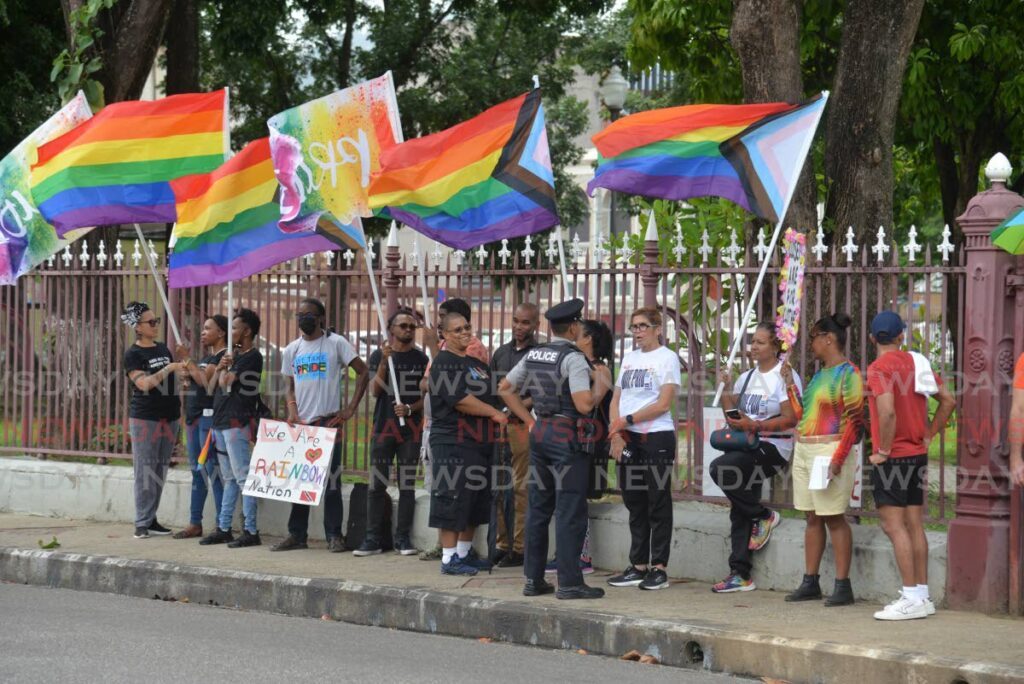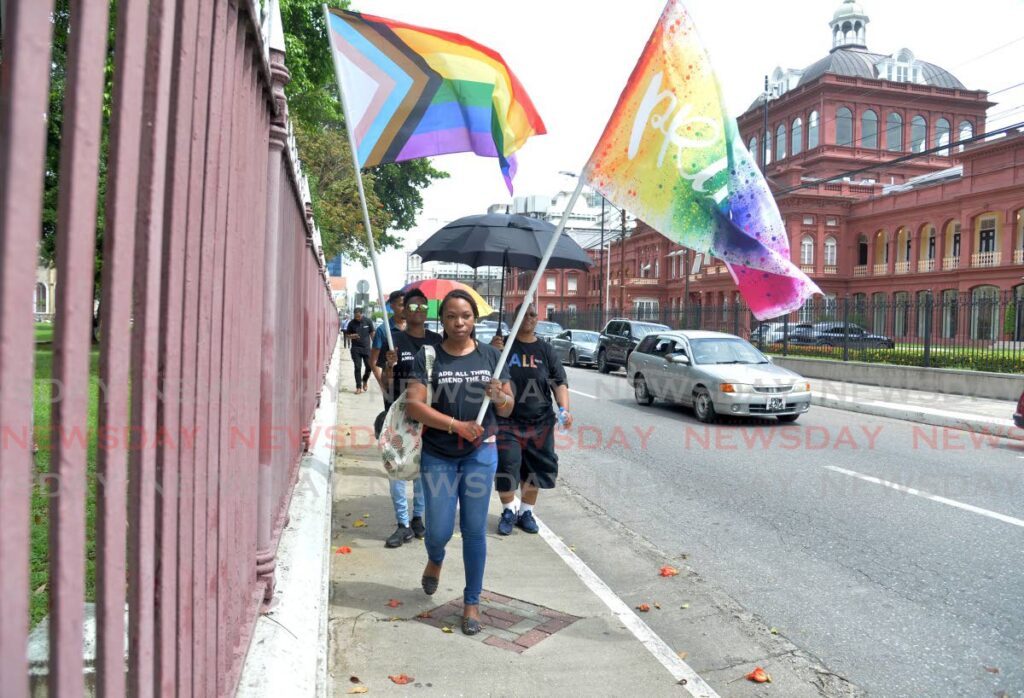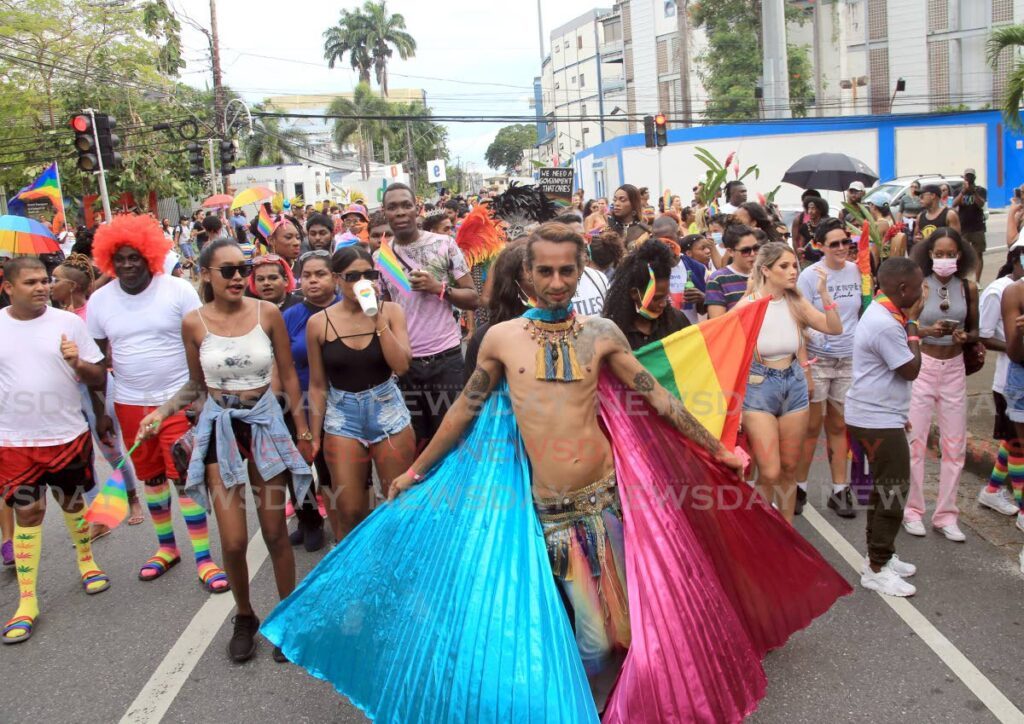Long way yet for recognition, safe spaces

WHILE the lives of transgender people have marginally improved over the past five years, fear for their safety and discrimination by the general population have kept many members of the community cautious and hidden.
TT Transgender Coalition director Rae Alibey said the trans community was the most marginalised, as it was not even recognised in TT. She believed national discussions and attitudinal research was necessary to educate people and to find out why trans people continued to be marginalised.
“Whether people agree or disagree, sexual orientation is something you recognise happens and exists. But the whole concept of what it is to have a different gender identity, that has nothing to do with sexual orientation, is not recognised.
“Now we’re doing some work on getting gender expression physically, but things like gender identity markers on forms, especially within more institutionalised systems, and not having sex and gender conflated, would be great.
"It could be very triggering for trans people, but people on the whole just don’t get it.”
She explained gender identity was how a person recognised their own gender expression in terms of their behaviours and how they thought of themselves. She said a lot of transgender people did not recognise themselves as trans because they only thought of gender along binary lines – a person who was assigned female at birth, but lived and expressed themselves as male, or vice versa.
But there were many other different expressions of gender. These included non-binary people, who may feel like a mix of genders or that they have no gender at all, or gender-nonconforming, which, oversimplified, was a masculine woman or a feminine man, whether they were straight or gay.
“A big challenge is people are stuck in the binary of the heterosexual world and they try to pull it into the gender and sexually diverse world.

"Many just exist as they are. They express themselves as they feel they are in their awareness.
"We now have a huge umbrella that encompasses everything not gender-conforming.”
Also, there were different levels of transitioning as not everyone wanted to change their bodies. So while there were gender-affirming surgeries and hormone treatments, there was social transitioning, in which people used clothes and pronouns to represent themselves. There was also legal transitioning, in which a person’s gender was recognised on legal documents.
Alibey said there had been improvements in TT. A major one was the coalition’s collaboration with some private doctors who were willing to help people of trans experience live their authentic lives through hormone replacement treatment.
She said trans people could access treatment in the pubic health care system, but that was not reliable, so it was usually those who could afford it privately who benefited the most.
There were also workshops to help medical professionals better understand the experience of trans people and the need for trauma-informed responsive care.
But trans people still experienced a lot of violence.
She said they were still beaten, stoned and chopped, but the general public only heard about it when a member of the trans community died. She said that was because there was no point in reporting incidents of violence to the police, as they often treated the victims unfairly, like criminals, or they were not taken seriously.

Alibey said people in the lesbian, gay, bisexual, and transgender plus (LGBT+) community also had to be careful using online apps to meet people.
She said apps like Grindr, Facebook, Instagram and WhatsApp were an easier space to meet people of other gender and sexual diversities, whether it was to find a community where one can experience a sense of love and belongingness or to hook up for a meet. However, it was also a space that ill-intentioned people could easily frequent to prey on the vulnerable and marginalised.
“Regardless of the platform, there are risks associated with meeting ‘online friends’ in person. To this end, CAISO: Sex and Gender Justice have a list, which is not exhaustive, on their web page with tips on safety when moving from online to in-person meetings.”
In addition to fear for their lives, some, especially dependents, had to deal with threats and financial, physical or psychological abuse from family members. Because of this treatment, some became dependent of drugs to cope.
The coalition has been trying to raise awareness through its Illuminating Lives Series on YouTube, telling the stories of trans people and the various difficulties they faced, including unemployment, stigma and violence.
According to Alibey, more young people were identifying as non-binary or gender-non-conforming as they became aware of themselves at an earlier age and had access to more information.
They were also seeing themselves represented in people like Tobagonian-American transgender actress and model Dominique Jackson, energising them to push for gender-identity recognition and to create safe spaces for themselves. But they were doing so cautiously.
Still, there was pushback, such as with the children’s book highlighting LGBT+ characters being sold at a local bookstore last year.
“And there has been a lot of anti-gender and sexuality awareness rhetoric coming from the global north, the neo-conservatives. Like a well-oiled machine, they just have this constant rhetoric coming out. Their messaging is just simple, clear and unified," said Alibey.
“Last year people were afraid to come out (on a Pride march). And in the Pride Parade this year, you will still not see a healthy representation of the trans community.
"They are afraid to come out because they are worried about their safety. Because there really is no law that protects them against these kinds of hate crimes or being fired.
"I’m not even going to say anything about the Equal Opportunity Act.
"These are the kinds of things that keep the trans community somewhat hidden.”
She added that although Pride Month was a celebration of LGBT+ diversity, there was no collaboration with leaders in the trans community to encourage trans people to attend and keep them protected.
Still, the community was holding a few events, including a Utopia, a drag competition in which donations go to assisting unhoused people dealing with potentially traumatic events with shelter. Also scheduled was Night of Pride: Celebration of WE, showcasing a diverse range of queer talent and contributions; Self Care and Chill, a poolside workshop on mental health; Drag Bingo; and a movie night. She stressed that while many of those attending were not trans, they went to support trans people and to enjoy themselves.

Comments
"Long way yet for recognition, safe spaces"